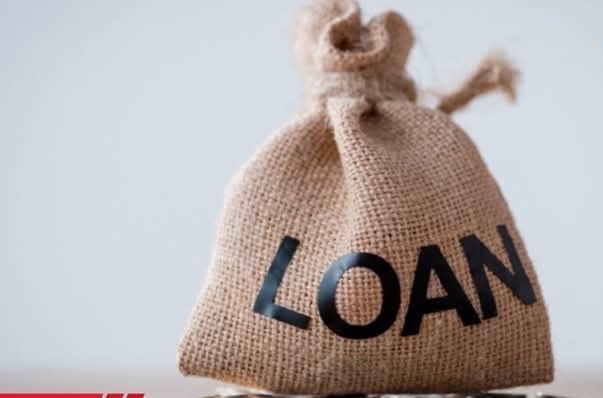The IMF’s Resident Representative for Nigeria, Mr. Christian Ebeke, cleared the air on the repayment of the Rapid Financing Instrument (RFI) loan facility, which was disbursed in April 2020 during the COVID-19 pandemic to Nigeria.
Recall that during the pandemic, the global economy was almost shut down, resulting in a sharp fall in oil prices, a slowdown in economic activities, and a drastic drop in government revenues.
It is pertinent to recall that in the wake of the COVID-19 in 2030, Nigeria requested emergency assistance of about US$3.4 billion — equivalent to 100 percent of its quota from the International Monetary Fund to shore up the country’s economy and help businesses weather the storm of a deadly pandemic that disrupted global markets and plunged the world into a recession
Nigeria was among African countries that received US$3.4 billion from the International Monetary Fund (IMF) under the Rapid Financing Instrument.
At the meeting of the IMF Executive Board held on April 28, 2020, the financial support of $3.4 billion was approved. It was expected that Nigeria, having received this financial support of about US$3.4 billion from the International Monetary Fund (IMF) under the Rapid Financing Instrument to help alleviate the impact of the COVID-19 pandemic and the sharp fall in oil prices, it impact Nigerian people at that time
To provide critical support to shore up Nigeria’s health care sector and shield jobs and businesses from the shock of the COVID-19 crisis.
In particular, the loan was designed to help alleviate the impact of the COVID-19 pandemic and the sharp fall in oil prices, and also help limit the decline in international reserves.
However, Nigeria paid back the Rapid Financing Instrument (RFI) loan facility to the International Monetary Fund (IMF) in April 302025.
Nigeria’s principal balance stands at zero; scheduled charges, including net charges, basic interest, and administrative fees, amount to Special Drawing Right (SDR) 125.99 million.
At the current exchange rate, this translates to approximately N275.28 billion
The Special Drawing Right (SDR) is our supplementary foreign exchange reserve asset defined and maintained by the IMF, which represents a claim to currency held by IMF member countries for which they may be exchanged.
Interestingly, the federal government of Nigeria has widely celebrated the repayment fits
Saying it is discipline, reform, and a strategic reset by the Tinubu-Shettima administration in restructuring our finances to enable us to be better placed for a prosperous future.
There have been mixed reactions to the claim of full repayment of the IMF loan
Having cleared the principal amount, the federal government is now expected to pay the interests and charges on the loan, estimated to be about N200bn.
Nigeria’s total domestic and external debts amount to over N144.67 trillion, according to the Debt Management Office (DMO).
Critically, there is doubt over the repayment of US$3.4 billion from the International Monetary Fund (IMF) under the Rapid Financing Instrument.
But one thing that remains critical, according to economists and development experts, is
The need to double down and reduce our debts
Because given the current debt level and particularly given the current level of our debt service commitment and the number of resources we are committing to debt service,
Another is a rethink to help us bring about fiscal sustainability, since we cannot keep our debt sustainability
Our debt exposure, especially external debt, is much more difficult to manage and service than domestic debts
Already, the federal government and state government are indebted to many multilateral organisations like the IMF, World Bank, African Development Bank (AfDB), among others.
With the sharp drop in oil prices in recent times, there are indications that the federal government would borrow more to bridge the deficit.
Unfortunately, as this debt burden persists, with the amount of loan yet to be repaid and with more borrowing in the offing, especially with the World Bank,
Many Nigerian economists query why the government celebrates the repayment of covid COVID-19 loan to the IMF, saying it is not yet Uhuru.
Instructively, Nigerians want the government not to be carried away by the loan repayment with the IMF and stressed the need to double down, especially on foreign loans, to ensure debt and fiscal sustainability.
Going forward, the big picture for us as a nation is to see how we can as a nation reduce our borrowing profligacy. The current situation has made us indebted to many multilateral institutions and local banks. And this so it doesn’t significantly change our development profile.
Although government has much money to play around with, the triple down effect on the economy is not very strong, but in terms of fiscal sustainability for the government, it’s an improvement.
And sincerely, many of these are stolen, via corruption in our public service, saddled with administering the funds.
We must move toward ensuring fiscal sustainability, along the road to avoid fiscal imbalance
Meaning we need to utilise loans is also important, our loans must be committed to projects that would enhance the productivity in the economy, and that should be our priority, and that is dialogue largely to our infrastructure stock.
We believe that we bring fiscal consolidation objectives and will improve the economy.
*Adefolarin Olamilekan is a Political Economist & Host of The Market Report Show on ADBN Television





